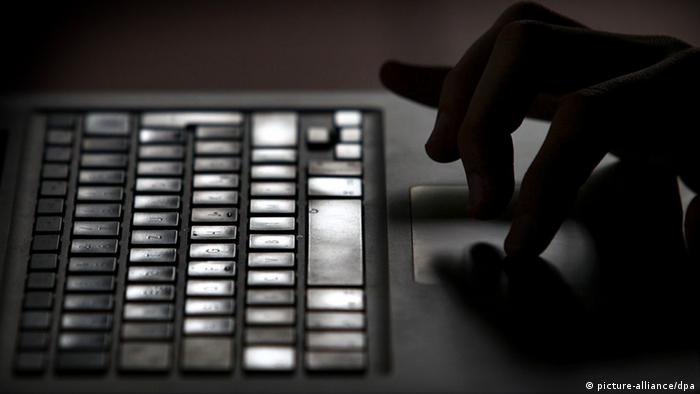Russia
With a click in jail
It is not enough to criticize the annexation of the Crimea. More and more Internet users to land because of your comments in the prison. With the new Anti-Terror law, Moscow dries up, the last oasis of freedom of expression.

The Internet was in Russia for a long time as the last island of free expression. The more the state controlled TV and government silenced critical voices, the more the importance of the World Wide Web.
In the network, Users were able to inform themselves and their
Opinion in networks or Blogs, without limitation, share. Also in the West, experts and politicians stressed that in Russia, despite some of the restrictions on the freedom of expression but the free Internet.
This applies today only to a limited extent. A few weeks ago, the Russian Parliament adopted a controversial Anti-terrorism law package, the 20. July enters into force. Anyone who calls publicly, on the Internet, to “terrorist activities” or justifies, risking a fine in the amount of one Million rubles (approximately 14,000 euros) or a prison sentence of at least five and a maximum of seven years.
In a draft law, a travel ban was provided, but was deleted by the legislators after strong public criticism at the last Moment.
Dangerous Clicks
While it is still possible to inform the network, but who manifests itself in social networks, for example, “Like”-Button is pressed, a Text or a Video shares, risking the withdrawal of a high fine or even freedom. As particularly sensitive content apply to events in Ukraine, especially the annexation of Crimea.

Police officers arrest supporters of the Russian blogger Alexei Navalny, who demonstrate in front of the Kremlin
Andrei Bubejew have to spend, for example, a sentence of imprisonment of two years and three months in a settlement colony. A court in the Central Russian city of Tver said the 40-year-old engineer in may due to extremism guilty.
Bubejew was fatal, that he had shared in the Russian Facebook clone VKontakte for an article with the title “Crimea belongs to Ukraine”. In addition, he had shared a drawing, on the one Hand toothpaste out of a Tube presses. Underneath was written: “to press Russia out of you.” Of the prestigious Moscow human rights organization “Memorial” will Bubejew classified as a political prisoner.
Satire is undesirable
The 46-year-old Yekaterina Wologscheninowa got a relatively mild punishment. The single mother from Yekaterinburg in the Ural mountains in February was sentenced to 320 hours of community work. A court also ordered the destruction of your laptop. Wologscheninowa had shared in “VKontakte” proukrainische text and a caricature of Russian President Vladimir Putin.
The
The number of such sentences have doubled in Russia in the past two years, announced on Tuesday in Moscow, the human rights center “Sowa”. During 2013, there were almost a hundred convictions for Statements on the Internet, this number increased in 2015 to 194 cases. Almost one in five actually got a prison sentence, most of the defendants were fines or social work condemned.
Alexander Werchowskij, head of the “Sowa”, this leads among other things to technical progress. “You can now determine against so-called extremism, without rising from the office chair,” he says. In addition, it is in the networks are particularly simple to identified people.
All the procedures due to activities on the Internet are not to be disputed, acknowledges Werchowskij. “Often, it is actually unpleasant texts and Videos with extreme right-wing Background, and less often with Islamist motives,” said the expert.

Alexander Werchowskij directs the human rights center “Sowa” in Moscow
Internet users under pressure
Already after the annexation of Crimea aggravated Russia, its legislation, even for crimes on the Internet. A key role is played here by a law which President Putin signed in June 2014.
So for the crime of “incitement to extremism in the Internet” prison sentences of up to five years. Because of incitement, hatred or violation of human dignity, including the Internet, is provided for a fine of up to 300,000 rubles (the equivalent of around 4200 euros) or a prison sentence of up to four years.
The whole hardness of the law got in December 2015, the Blogger Vadim to feel Tjumenzew from the Siberian Tomsk. He was sentenced to five years in prison. The reason: He had criticised in the network, the local government and called for protests. The court considered this as extremism. In addition, it is appreciated Tjumenzews criticism of Pro-Russian separatists and refugees from Eastern Ukraine as a “baiting”.
Critics leave Russia
“There is a clear Trend: The state is gradually becoming clear that the Internet can effectively lock in order to block information,” said Damir Gainutdinov, a lawyer with the Russian human rights organization “Agora”. “Internet users are under increasing pressure.”
Some of the prominent bloggers leave Russia, in order to avoid a possible penalty. One of them is the Moscow political expert and Kremlin critic Andrei Piontkowskij, for a while in February.
According to reports, there was against him, allegedly, to a method due to extremism. The occasion of a blog post with criticism of the Chechen leader, Ramzan Kadyrov, the Piontkowskij on the side of the radio station “Echo of Moscow” was published. The days of the
Freedom of expression, it seems, are counted in Russia.